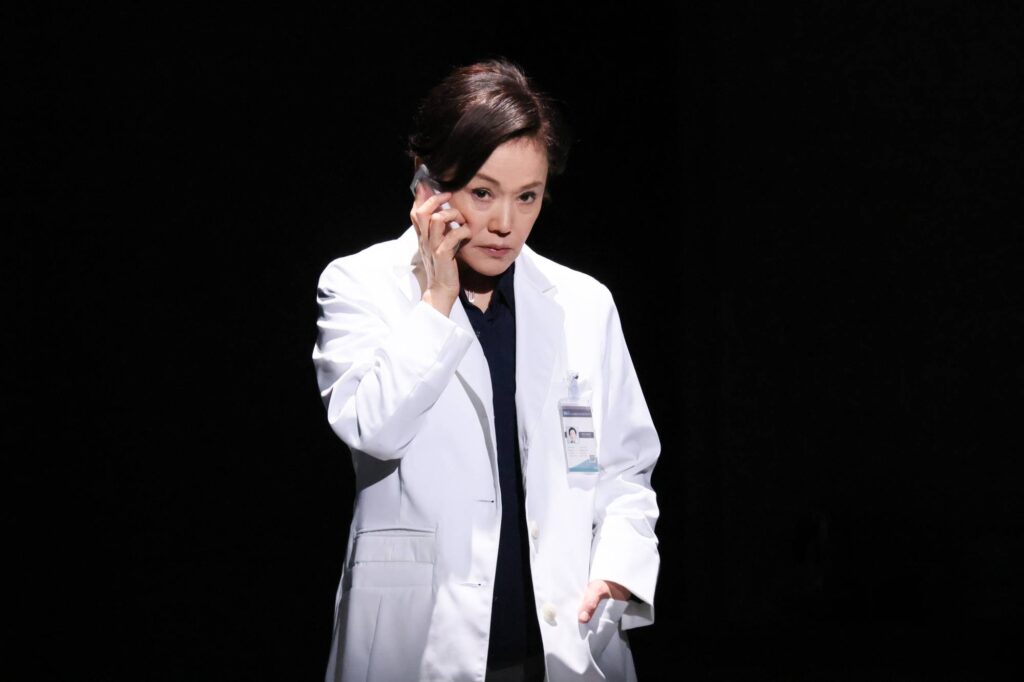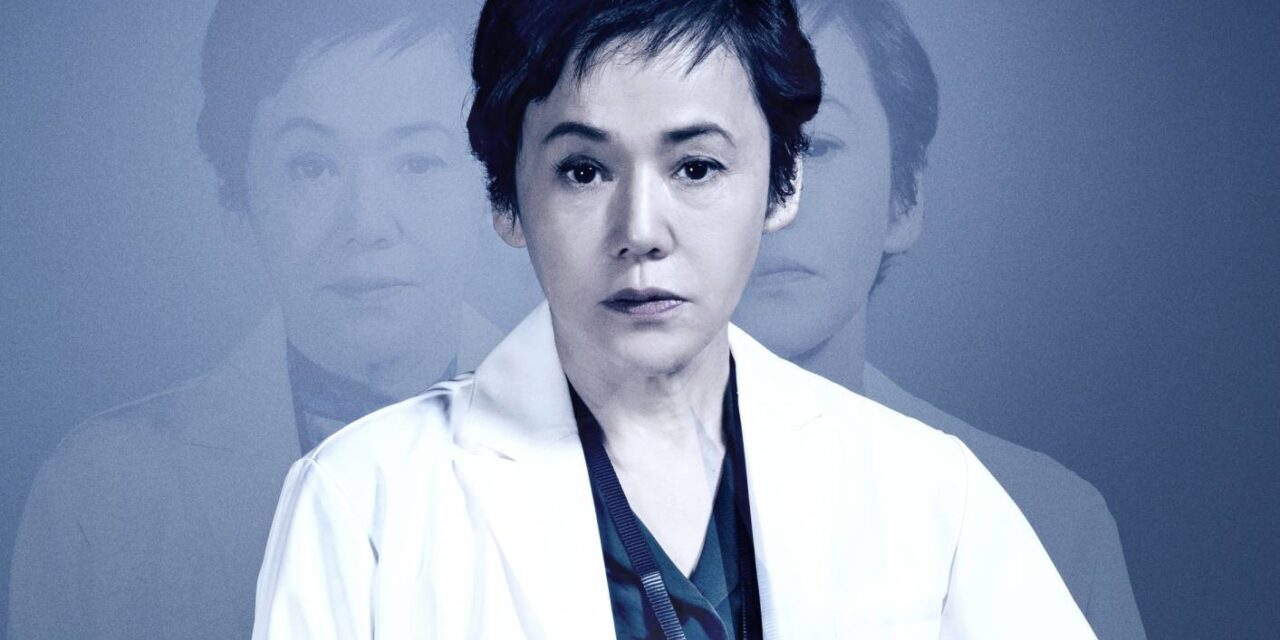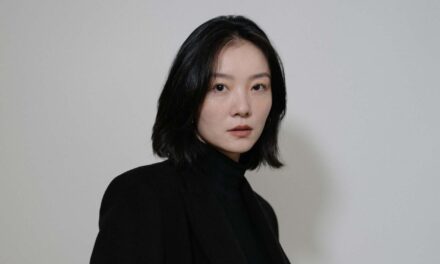After its premiere at north London’s Almeida Theatre in 2019, Robert Icke’s The Doctor earned glowing reviews and plaudits, most notably Olivier Award nominations for best new play and best actress. However, just as it was set to take on the West End, the production was shuttered by COVID closures.
Thankfully, in Tokyo, theaters have resumed business as usual after a grueling 18 months of multiple state of emergencies, and this latest work by Icke is running now through Nov. 28 at the Parco Theatre in Shibuya. Taking on the title role of Dr. Ruth Wolff, a Jewish physician, is actress Shinobu Otake, under the direction of seasoned veteran Tamiya Kuriyama.
“I had a chance to see the play at the Almeida, and although I couldn’t understand everything, I was able to grasp the characters’ relationships and the story,” Otake, 64, says. “I especially enjoyed the characters’ arguments, which had a brilliant rhythm and tempo. I was also greatly impressed by the main actress, Juliet Stevenson. Her acting was truly realistic, and she was so energetic and cool.”
Otake, an acting veteran with three Japan Academy Film Awards under her belt, says that while she was enthusiastically applauding the show from the front row of the cozy theater, it never occurred to her that she would be performing the lead role in Japan a couple of years later.
For The Doctor, Icke freely adapted Viennese author Arthur Schnitzler’s 1912 play Professor Bernhardi, setting the story in the modern age with a female protagonist. Ruth is the founding director of a prestigious institute specializing in Alzheimer’s disease, and one day, a 14-year-old girl comes to her needing emergency care after a self-administered abortion. When the patient’s condition becomes dire, Ruth refuses to allow a Catholic priest (Toru Masuoka) to perform last rites, on the basis that they’re unsure of the young girl’s religious beliefs and that she should be allowed to die in peace.
Soon the priest’s side of the incident goes viral on social media, putting Ruth at the center of a scandal that reveals the contending values and sexist and racist attitudes of those around her as well as the general public.
Otake says she was surprised when she read the play in preparation for the Japanese production, as the story touches upon multiple weighty topics, such as gender, religion, degenerative disease, and medical ethics.
“I understand that Ruth is an intelligent, strong, and independent woman, but she definitely has a weakness that doesn’t usually show at her workplace,” she says. ”It’s normal to have different versions of yourself, and I realized anew that people shouldn’t be quick to judge others, because they usually have several different personalities within them at the same time.

Shinobu Otake, who plays the title role of Dr. Ruth Wolff in the Japanese production of “The Doctor,” was impressed by the “brilliant rhythm and tempo” of the characters’ arguments when she first watched the play in London. PC: Maiko Miyagawa
“I suppose Ruth has confidence in herself to always make the right decision. However, even though she doesn’t intend to, she hurts people without noticing. I think that those kinds of human contradictions, namely that people are not able to be perfect 100% of the time, is one of the very interesting points of this play.”
Although the play takes place in England and discusses issues related to race and religion that may be less familiar to Japanese audiences, Otake insists that contemporary theater provides an important opportunity for viewers to become aware of other countries’ values, lifestyles, and current affairs.
“Many people in Japan today live without experiencing conflicts over religion and race,” she says. “However, through our staging of this English drama, which intricately weaves in sensitive issues such as Jewish-Christian relations, I hope audiences realize what is happening outside Japan and see how the issues of other countries are relevant to them. That’s why it is important to stage non-Japanese dramas, and why I want many young people to see this play.”
Otake says the key to the English production’s success was that it is grounded in reality. When she saw the play in London, she felt as though the actors were having real debates in front of her eyes. So how will she and the rest of the cast create such a realistic experience here?
“When I act as Ruth during rehearsals, I become sensitive to how the other characters react. Though someone may try to hide their real intentions, they can’t do it well instantly. So, even during the quick and aggressive conversations, I carefully observe the other person’s first and most honest reactions. These are the very delicate and detailed things that actors need to worry about. So I carefully pay attention to each word. Which particular word do I need to react to or be angry about? I must make that point as clear as possible to tell this story.”
In the final scene, after she has been put through the wringer, Ruth meets the priest again. He speaks to her calmly, saying, “It’s difficult to hear each other over all the history crashing around us like waves.” Ruth responds, “I feel things are ending. The postwar institutions, the postwar ideals….[They’re] starting to crack.”
To Otake, Ruth’s words are dark but true. Although modern society is changing, it’s not necessarily for the better. “On the other hand, I believe we should find hope during dark times,” she says, referring to how the pandemic revealed society’s need for change. “Always having hope for the future, that may be our salvation.”
The best way for audiences to understand this sentiment, Otake says, is by coming to the theater and seeing the live performance.
“During the pandemic, many theaters had to move their productions online. But I want to say in a loud voice that theater must be a live performance…The Doctor is a very thrilling conversational drama and you may laugh at seeing humans’ twisted ways of thinking. I hope many people will enjoy our verbal machine-gun battle as I experienced it in London.”
The Doctor runs through Nov. 28 at the Parco Theater in Shibuya, Tokyo. For more information, visit http://stage.parco.jp.
This article was originally posted on Japan Times on November 11, 2021, and has been reposted with permission. To read the original article, please click here.
This post was written by the author in their personal capacity.The opinions expressed in this article are the author’s own and do not reflect the view of The Theatre Times, their staff or collaborators.
This post was written by Nobuko Tanaka.
The views expressed here belong to the author and do not necessarily reflect our views and opinions.


















